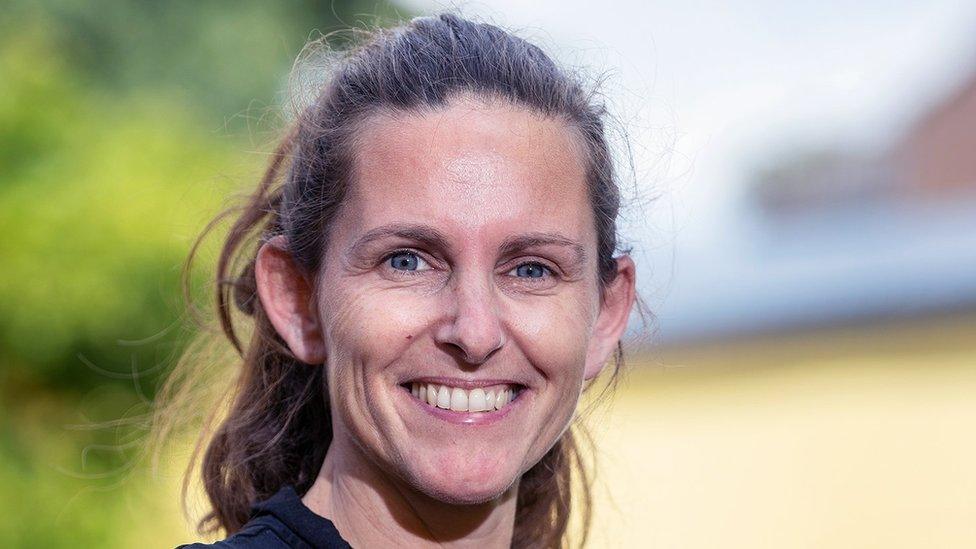Autism: Workplaces 'need to be more supportive'
- Published
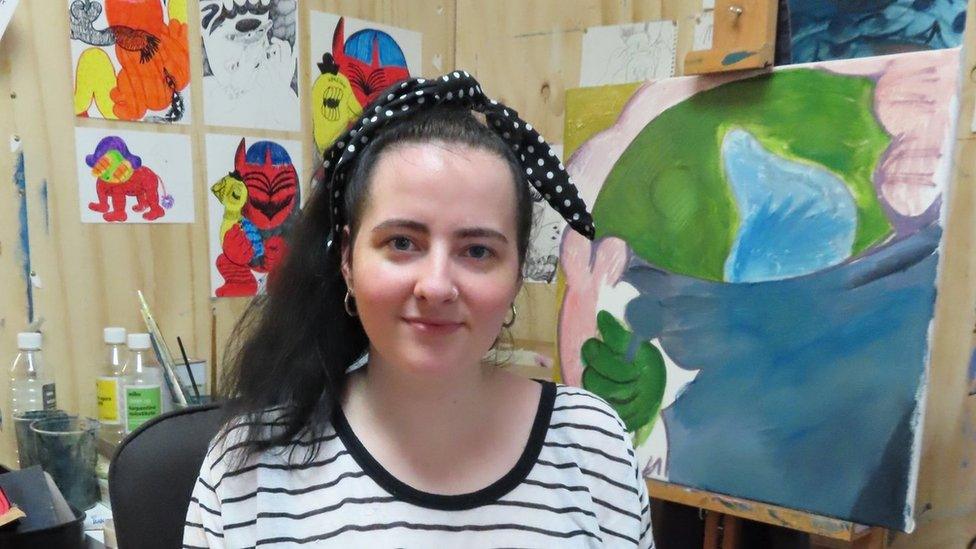
Alice Banfield says her work experience didn't encourage to seek a job again
An autistic woman said her experience of work was traumatising and more consideration was needed for neurodiverse employees.
Alice Banfield, 25, from Cardiff, said overstimulation and lack of communication led her to have an anxiety attack while working as a shop assistant.
"It didn't really encourage me to seek employment after that," she said.
Figures suggest just 22% of autistic adults, external in the UK are in employment.
After graduating, Alice took a part-time job as a seasonal shop assistant.
"It was very traumatising to me at the time," she said.
She said she was not given clear instructions, struggled to read her colleagues' and customers' body language and was overstimulated by the busy and bright environment.
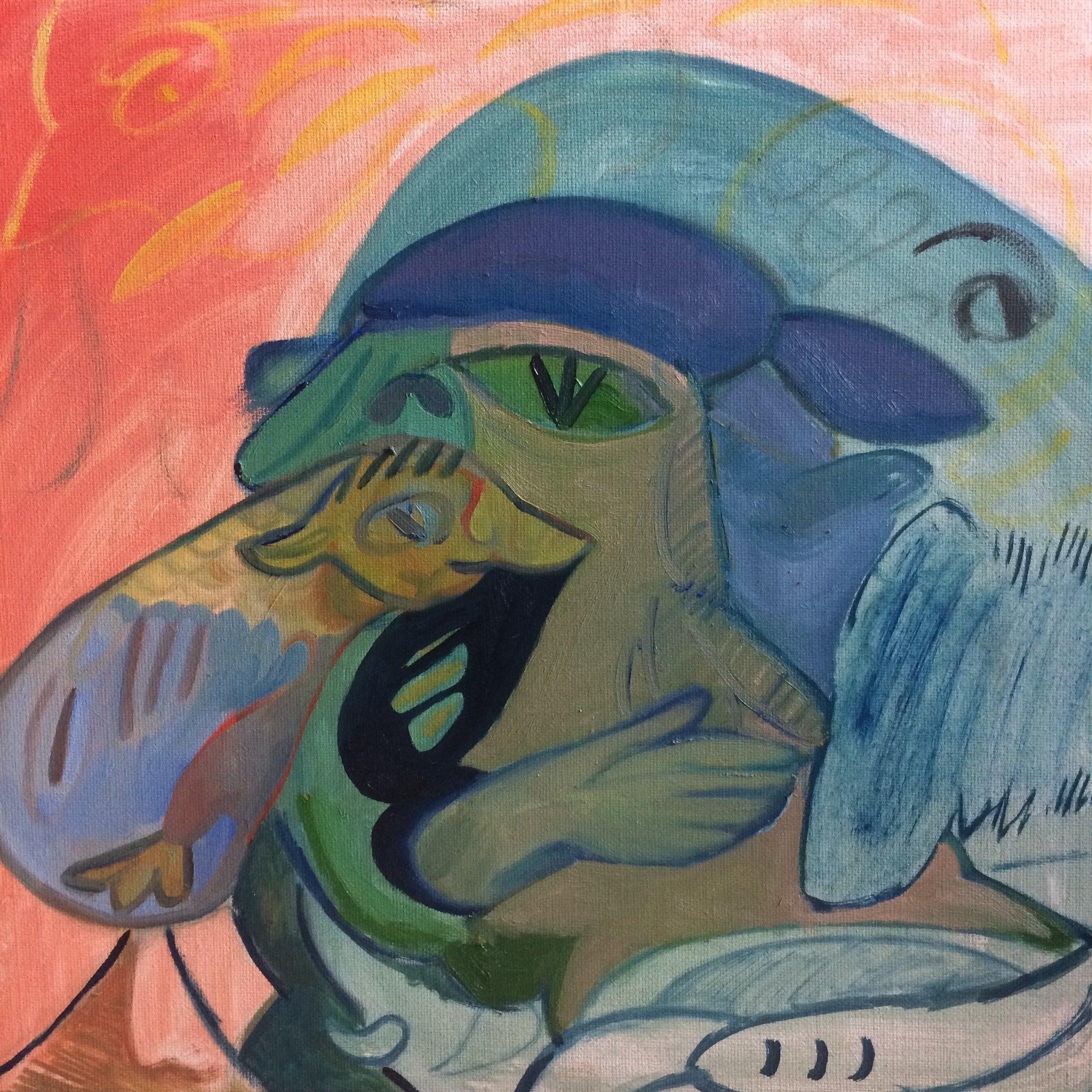
Alice Banfield is now a freelance artist
Disclosing her autism did not help.
"It was really stressful and put a lot of anxiety on to me and to the point I had an anxiety attack during one of my shifts.
"It really triggered [a lack of] trust in working with others and didn't really encourage me to seek employment again after that."
Alice is now a freelance artist and aims to educate people about autism through her work.
"I just don't feel like there is much support regarding employment for autistic people," she said.
An estimated one in seven people in the UK are neurodivergent, which includes people with dyslexia, dyspraxia, ADHD, the autism spectrum and other neurological functions.
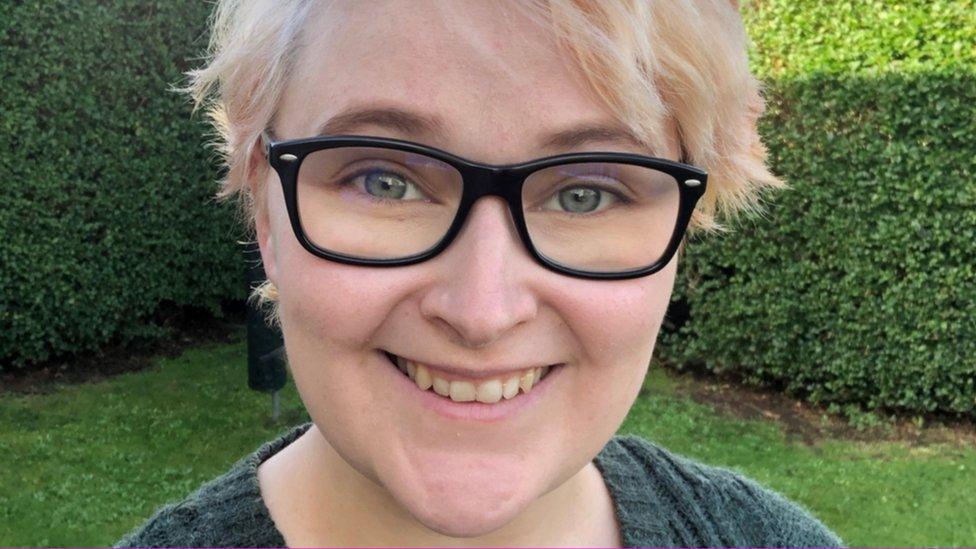
Rebecca Ellis says job inductions, mentors and a quiet room to go to when over-stimulated would help autistic workers
Rebecca Ellis, 29, is a PhD student at Swansea University and received her autism, external diagnosis when she was 24.
When working full-time as a behavioural assistant at a mainstream school two years ago she suffered long-term fatigue and burnout.
"We were needed at break time, at lunch time, before school, after school, in between lessons and during lessons.
"Even in the staff room there were eight of us in there, it was very loud, everyone's always trying to get their lunch... it's very busy and it's very friendly... but even friendliness can be overwhelming and quite a lot to be dealing with if you're trying to have a moment to yourself to calm down.
"It became overwhelming and I experienced burnout from work, which is where you're just incredibly exhausted and fatigued and you can't have can't push yourself to do it anymore."
Rebecca wants to see a number of accommodations made for autistic people at work.
She would like either alternatives to an interview, such as a written assessments, or changes to the way interviews are carried out, such as giving autistic candidates the questions ahead of time.
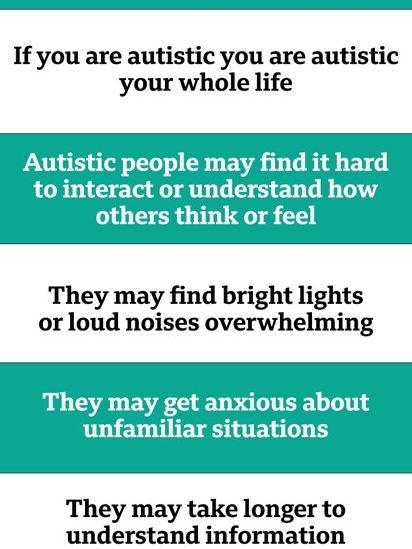

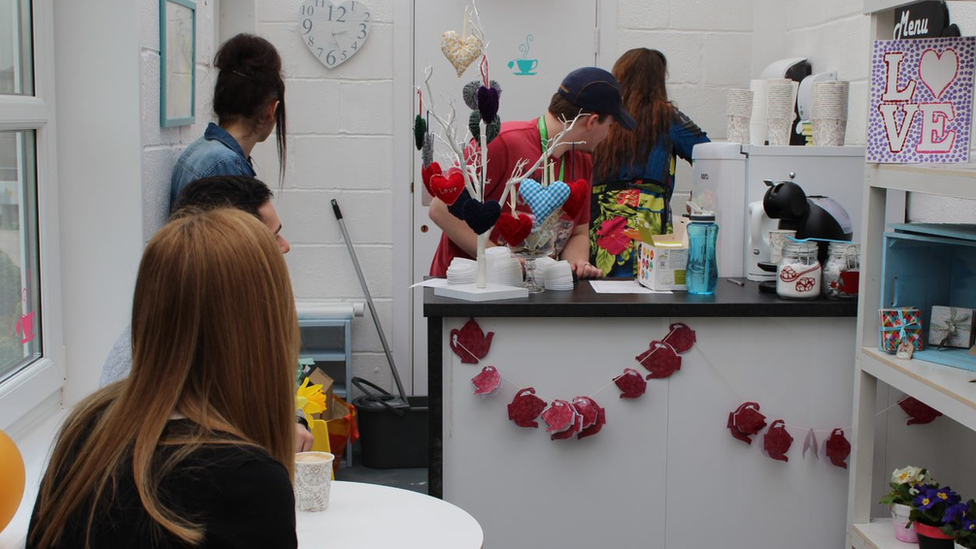
Students at Beechwood College have the opportunity to work in its coffee shop
'Overwhelming situation'
"Starting a job is going to be one of the most overwhelming things for an autistic individual because you haven't met your colleagues... you don't know the environment, you don't know the parameters of your job, and all these things can create a really overwhelming situation," she said
She suggested offering autistic employees a job induction, a mentor and taking the "burden of asking for accommodations off the autistic person and managed by someone who has been trained in working in a neuro-diverse environment".
Sound-cancelling headphones, "a quiet space in which no-one comes to find you" to retreat to when feeling over-stimulated and individual work spaces to give employees "a safe space to return to" would also help, she said.
She said most of the changes would benefit everyone.
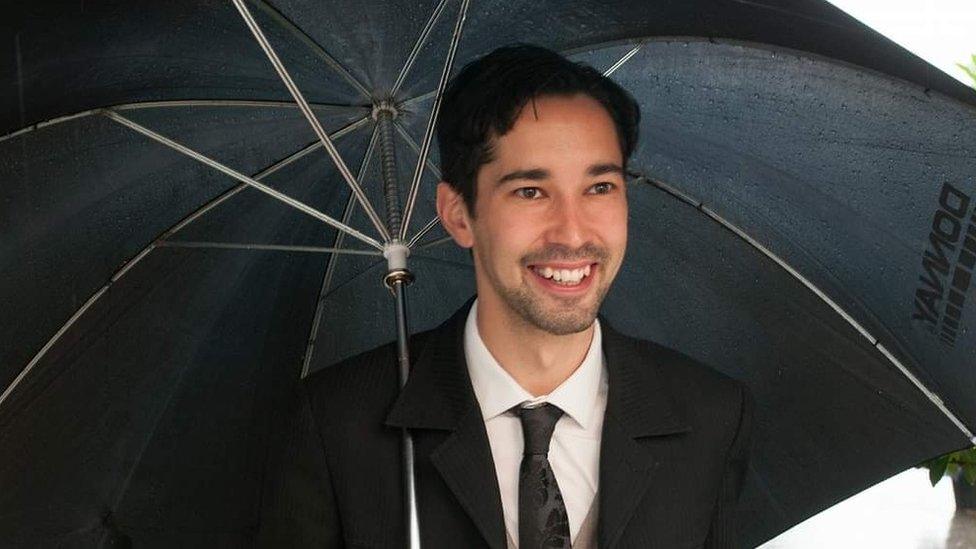
Dr Vaughn Price says autistic people face barriers to entering and remaining in paid work
Dr Vaughn Price is the principal psychologist at Beechwood further education college in Sully, Vale of Glamorgan, for students with autistic spectrum conditions.
The college offers experience of work through its coffee shop, selling crafts on an online marketplace and having a workspace set up like an office environment.
He said if workplaces could accommodate autistic employees they would reap the rewards: "Some of the students I work with are the most hard-working, honest, dedicated, imaginative and creative people that I've ever met.
"You meet the needs of an autistic individual, by far they could be some of your most productive, happy and dedicated workers. The possibilities are great."
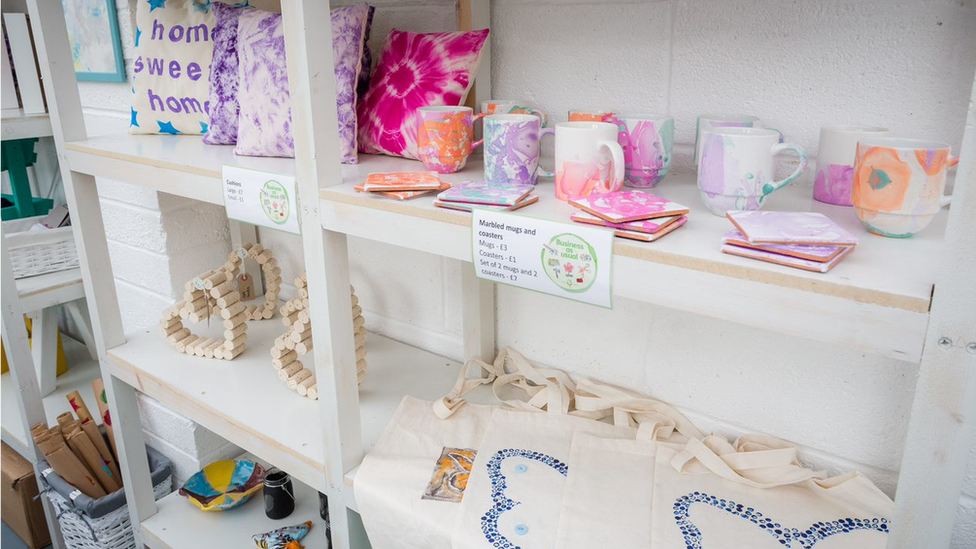
Beechwood students sell their crafts on an online marketplace
Sian Donovan is director of Cardiff-based cycling charity Pedal Power, and after taking advice from Dr Price on how to make the charity more welcoming to autistic people, she took on an autistic volunteer to help with administration.
"He has great difficulty in in communicating with large groups of people and people that he doesn't know but has an excellent brain - we found that once a task was explained, provided he was left quietly to work in an office, he would do an excellent job, and he was very comfortable knowing people would not try and engage in chit-chat".
She said she would encourage others to take on autistic workers and volunteers: "Don't be afraid of labels... or think that you can't cope, you're just dealing with individuals who may not be as comfortable making eye contact as others but it doesn't mean that they won't be able to do an excellent job."
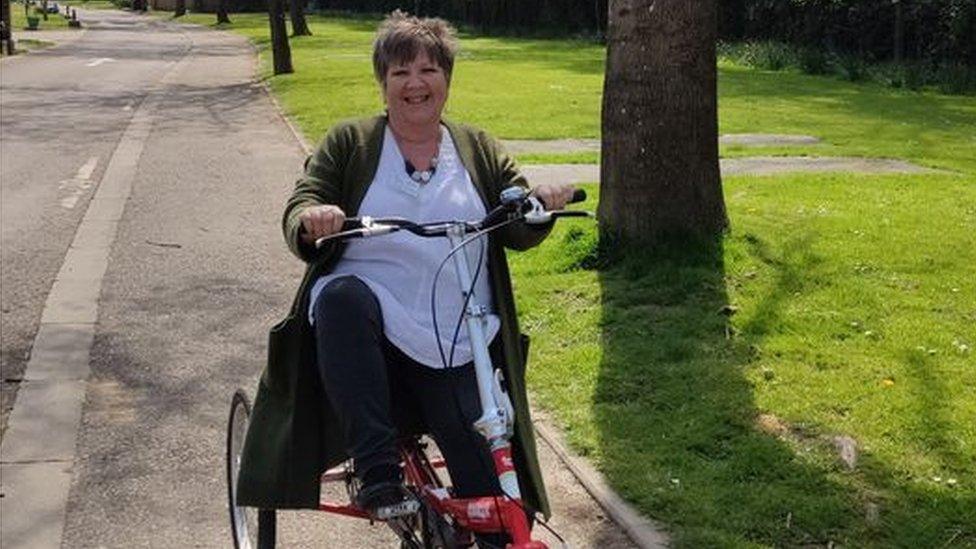
Sian Donovan says has been working to make her charity more welcoming to autistic people
Cardiff-based motor insurance company Admiral said it had more than 200 neurodiverse employees and had trained about 200 line managers in how best to support them.
It said it provided support and adjustments to employees from the recruitment stage and throughout their career.
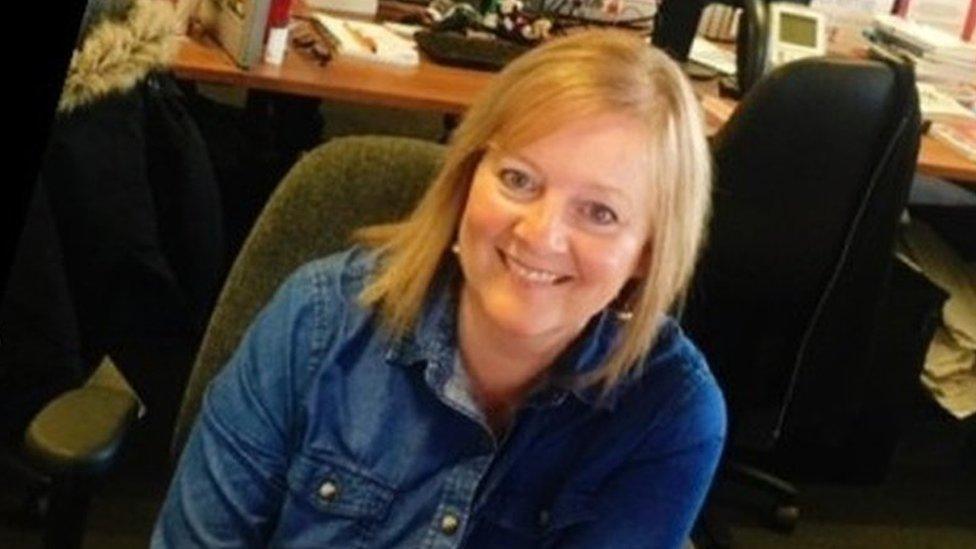
Sian Lewis from Admiral says having employees with a totally different way of thinking can be invaluable
The company's head of diversity and inclusion Sian Lewis said: "We have a deep appreciation of the attributes people from diverse backgrounds can bring.
"Bringing in someone with a totally different way of thinking and a completely different perspective can be invaluable."
The Welsh government's new Code of Practice for Delivery of Autism Services, external came into effect in September.
It also published a delivery plan, external where raising employers' awareness of autism and the code is listed as top priority.
The Welsh government said it was "committed to improving the lives of autistic people and access to meaningful employment opportunities is an essential part of this".
It said it had recently appointed five disabled people's employment champions to help close the employment gap between disabled people and the rest of the working population.
- Published7 March 2021
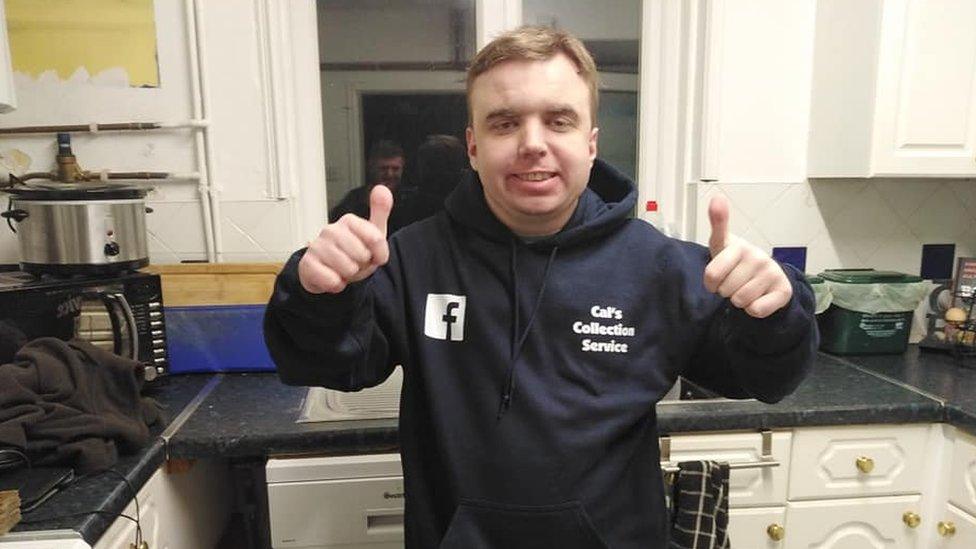
- Published17 January 2020

- Published17 January 2020
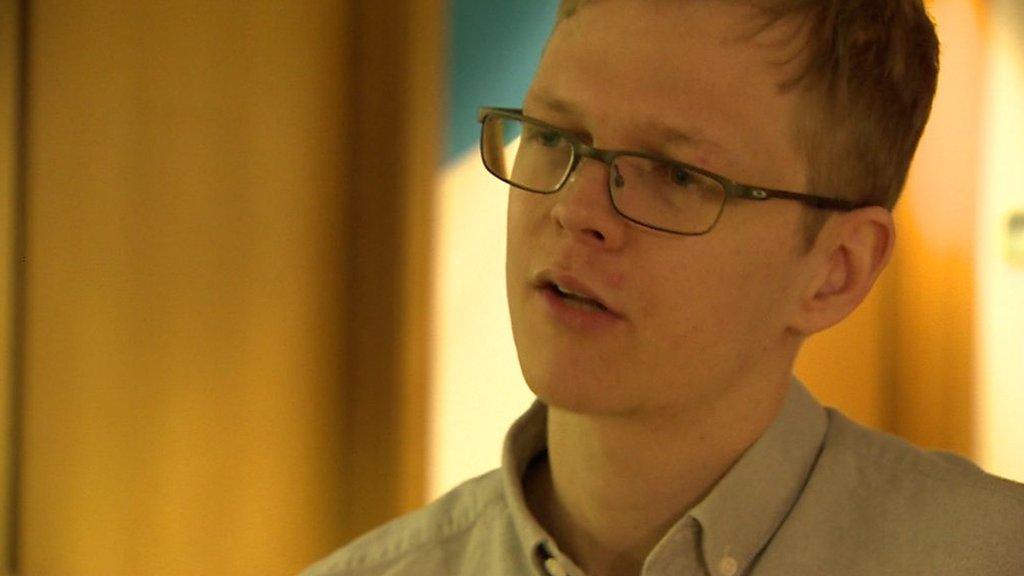
- Published14 October 2021
